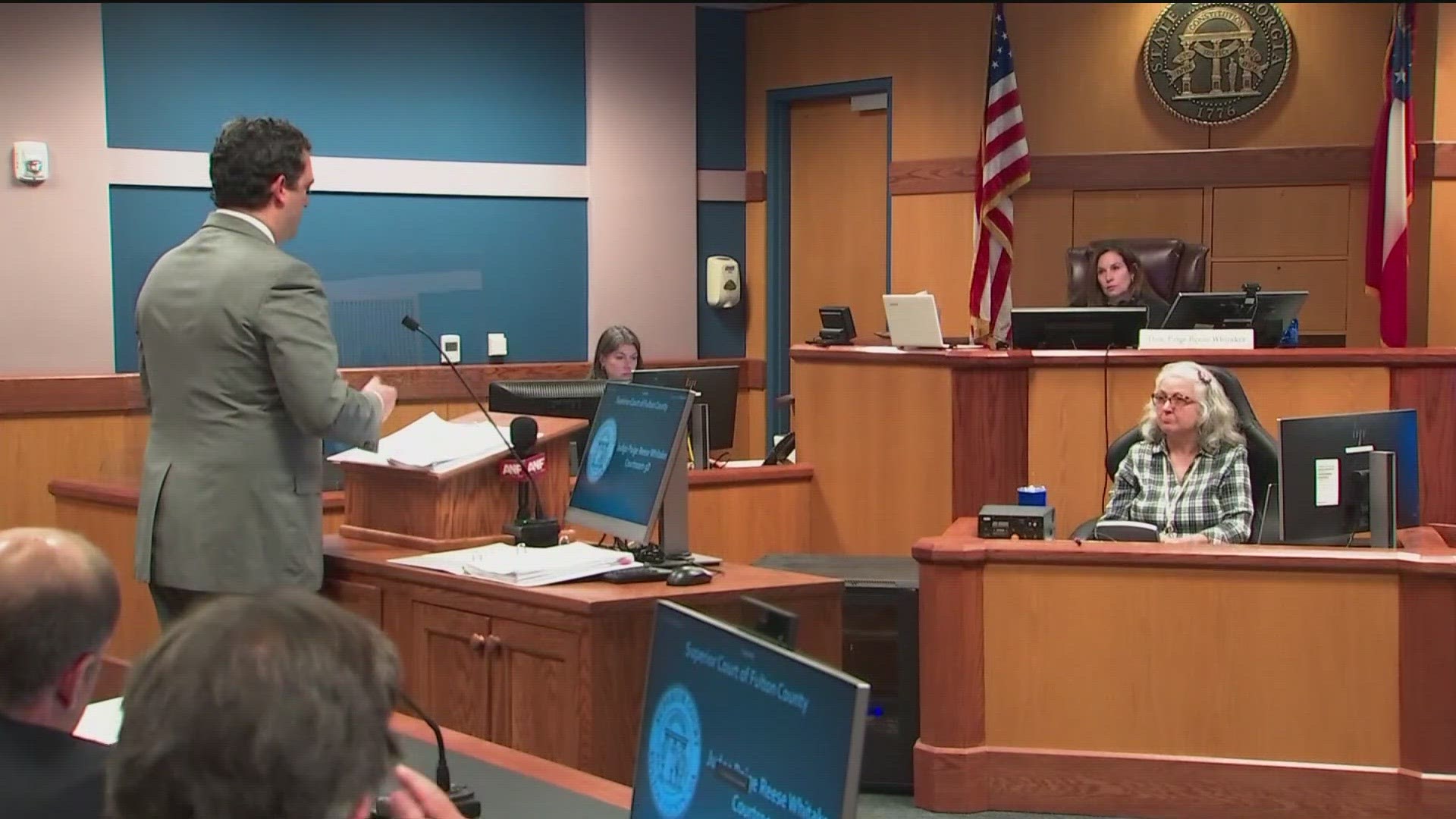FULTON COUNTY, Ga. — DeKalb County District Attorney Sherry Boston called a law that creates a commission to oversee prosecutors and solicitors-general an "assault on democracy" and on prosecutor discretion.
Boston and a group of other district attorneys have filed a lawsuit, seeking to block the law from taking effect while arguments about its legality wind their way through the courts.
SB92, signed into law in May, establishes the Prosecuting Attorneys Qualifications Commission and gives the commission the job of overseeing, investigating and disciplining district attorneys and solicitors-general.
On Friday, a group of district attorneys behind the lawsuit took it before Fulton County Judge Paige Reese Whitaker in hopes the Superior Court judge would grant an interlocutory injunction to prevent a commission from investigating or disciplining any district attorneys.
“As you know, there are already legislators who have vowed, come October first, to file commission complaints against district attorneys here in Georgia for just doing their job, including the D.A. who works in this very building,” Boston said, standing outside the Fulton County Courthouse, referencing Fulton County District Attorney Fani Willis.
Willis is currently seeking to prosecute two high-profile cases under the state's organized crime statutes, including the Young Slime Life case and that of Former President Donald Trump's alleged coordinated efforts to overturn Georgia's 2020 election results.
Inside the courtroom though, those defending the eight-member commission disagreed.
“There seems to be some misnomer that this is some partisan witch hunt against prosecutors,” said attorney Josh Belinfante.
Those defending the commission said the PAQC will not discipline a D.A. until the state Supreme Court has affirmed the rules.
“That doesn’t mean (district attorneys) can’t investigate, it means that they cannot discipline,” Belinfante explained. “They can retain complaints; they can do those kinds of things. But the injunction they seek would stop that investigation as well as the disciplinary part, and that’s the problem.”
Those against it argue SB92 is "deeply unconstitutional."
“There is too much of a risk that, while acting in good faith, the commission will interfere with the authority and the rights of district attorneys, which is why an interlocutory injunction is necessary,” said Joh Rosenthal, the legal director for Public Rights Project.
As of now, the commission can start taking complaints against prosecutors on Oct. 1, 2023.
Judge Whitaker said she will have a decision in seven to 10 days.

